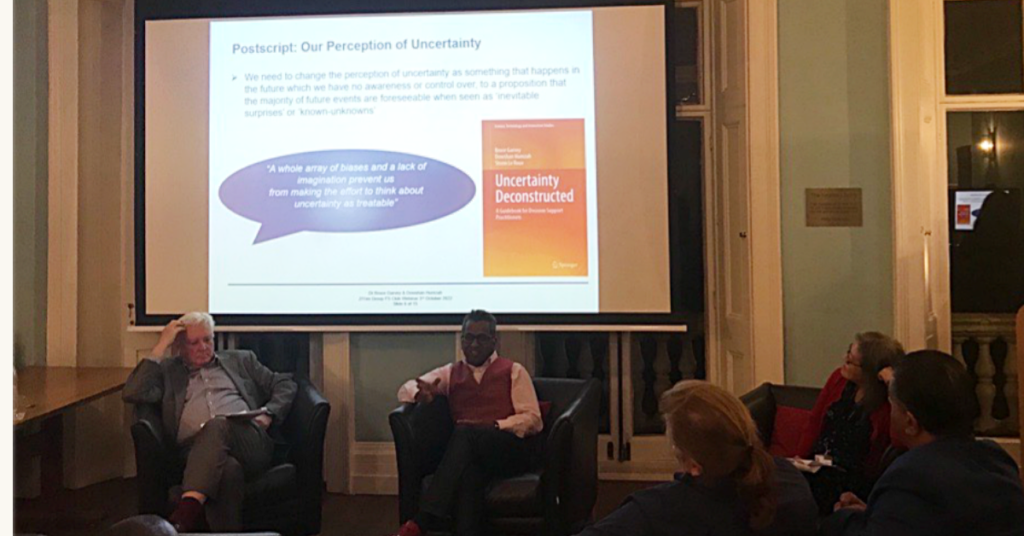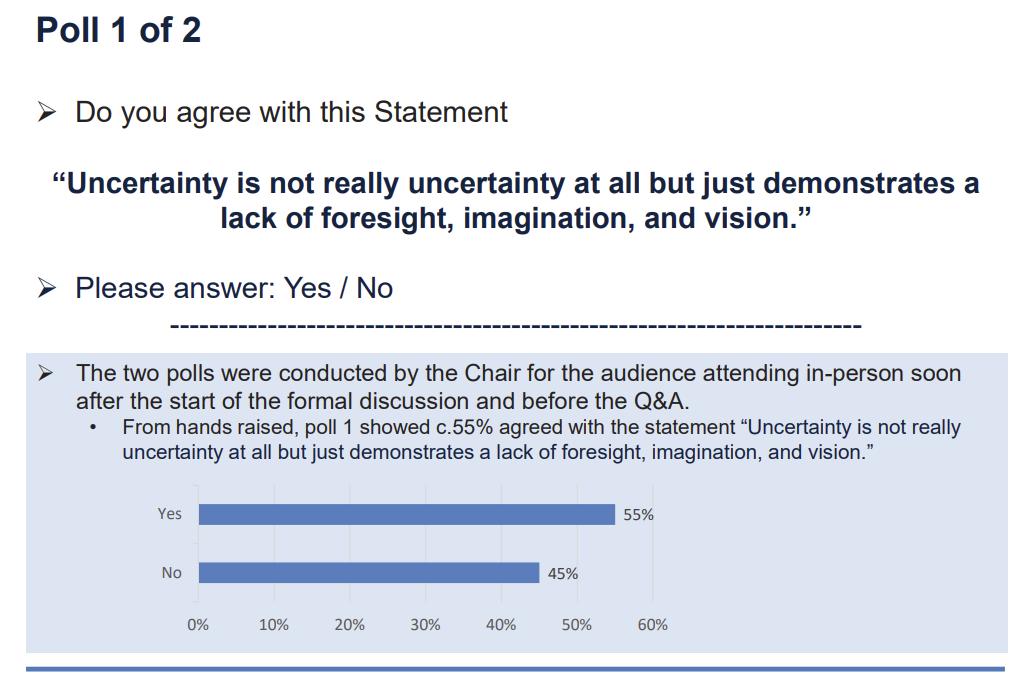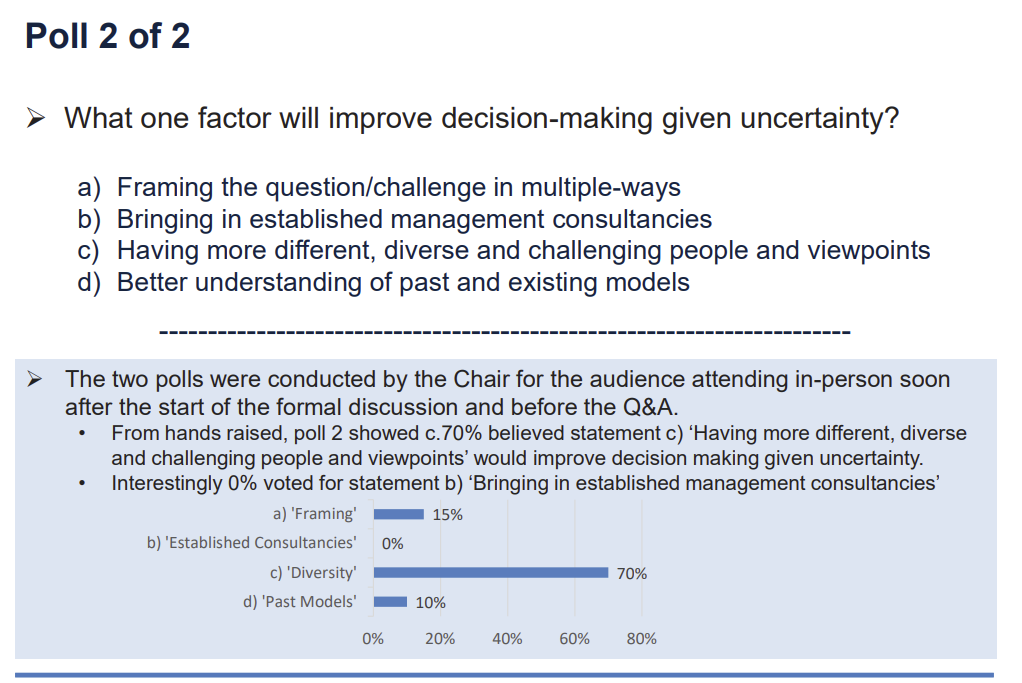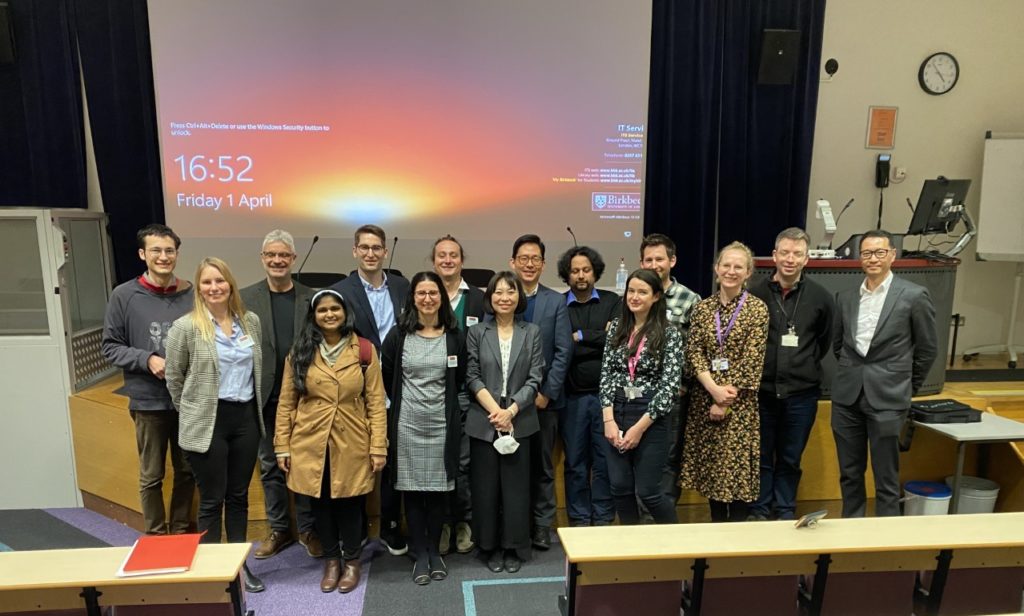The third seminar in our series with Professor Morten Huse was an opportunity to reconnect with colleagues in person and reflect on personal ambitions in academia.
On Tuesday 3 May, we were delighted to welcome Professor Morten Huse to Birkbeck campus for the third seminar based on his award-winning book ‘Resolving the crisis in research by changing the game.’ The series reflects Morten’s introspective journey to articulate what he has learned from his extensive experience working with a range of international universities.
Chaired by Dr Muthu De Silva, session three focused on how to scholarly position within the international community, referencing chapters three, four and six from the book.
Role models and mentors
Morten began the discussion by encouraging attendees to share their role models and mentors and to interrogate the difference between the two. Naming a role model can help scholars to identify their personal ambitions and the route they would like to take in their academic career. Mentors form part of an individual’s ‘invisible College’, helping scholars to build connections in their area of interest and expertise. Morten also stressed the importance of reliability when building an international career.
With an understanding of what we want to achieve, it becomes easier to identify which communities to join and which conferences to attend. Morten acknowledged the plethora of different communities and conferences available to scholars today:
- Global, regional or local
- Generalist or specialist
- Formal or social
- Philanthropic, idealistic, or economic
- Community or tourism focused
Morten drew comparisons between large academic communities and smaller, more agile groups. He described the Academy of Management as a ‘big ship’ which is less able to manoevre, contrasted with ‘tug boats’ which allow for engaged scholarship, such as the European Academy of Management. In a similar way, he encouraged attendees not to overlook the benefits of working with smaller institutions, as there can be more opportunities to take the initiative and find freedom in research.
The case for programmatic research
Morten encouraged attendees to adopt an outlook of programmatic research. Programmatic research refers to a scholar’s body of work and the links between outputs, rather than focusing on individual papers. Morten stressed that impact is not just about publishing papers, but about research that is genuinely ground-breaking and challenging.
One way to adopt this approach is for scholars to try and summarise their work to date and identify some key learning points, including work conducted with others. Morten encouraged attendees to be open with their research and to work collaboratively: “We shouldn’t be afraid of standing up. If you are going to be noticed and see an impact, dare to go beyond papers and explore books, chapters, gaining visibility in media and through seminars.”
Putting Morten’s advice into practice, the seminar was followed by an opportunity to network with colleagues from across the School of Business, Economics and Informatics and with current and prospective PhD students.
Session 4 in the seminar series will focus on the scholarly ecosystem and publish or perish (‘POP’) culture, exploring initiatives to develop true scholarship. Sign up to our mailing list to be kept up to date with details of this and future Department of Management events.
Further Information





